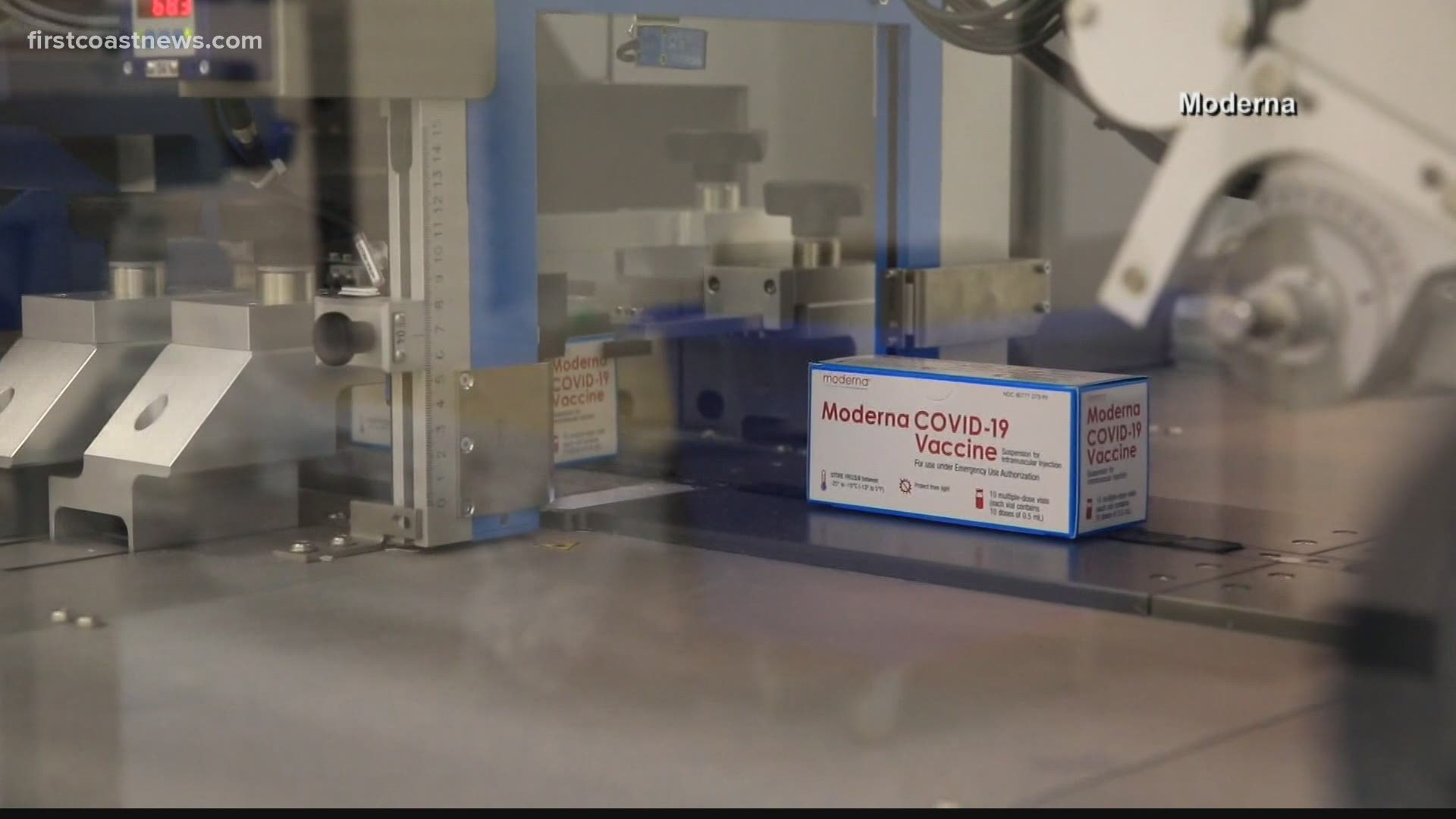JACKSONVILLE, Fla. — A week after the first Pfizer/BioNTech vaccines were shipped out across America, the Moderna vaccine is also making its way to medical facilities.
Doctors say people should get either one of the vaccines once it is available to the general public.
A Baptist Health spokesperson tells First Coast News they expect 1,000 doses to be delivered to their hospital as early as Monday.
Depending on which vaccine is available between Pfizer’s and Moderna’s will determine which one will be administered to healthcare workers.
Dr. Michael Koren at the Jacksonville Center for Clinical Research is the principle investigator for both the Pfizer and Moderna vaccine trials. He says he is practicing what he preaches to others.
“I was vaccinated last week and I feel terrific,” Dr. Koren told First Coast News.
Dr. Koren said he is experiencing some slight muscle ache in his left arm where the vaccine was given. He says he has seen very similar results in both trials.
“When you look at the documents you see about 10 days after getting the first dose of the vaccine, the risk of getting COVID is close to zero after that, whereas the people in the placebo group have the normal expectations for developing COVID based on the community they’re living in,” Dr. Koren said.
In terms of side effects, they are minor after the first shot. The second shot, which occurs 21 days later for Pfizer and 28 days later for Moderna, is associated with effects because the immune system has been activated.
The second dose may give a mild reaction like muscle aches, low grade fever and chills, Dr. Koren said.
Hospitals have the technology to store both types of vaccines.
Dr. Vincy Samuel, director of employee health at Baptist Health, said supplies are critical to protecting the workers and the people they care for.
“At this time it’s really based on what’s available," Samuel said. "So whichever one that’s available is the one we’re going to be using and administering to our healthcare workers."
The requirement for storing the Pfizer vaccine is -70 degrees Celsius, compared to Moderna which can be kept in a standard freezer.
Dr. Koren estimates it will be early spring before the vaccine becomes widely available.
“The FDA gave emergency use authorization based on two months’ worth of data, so in another three months or so, we’ll have six month data and we’ll be able to distribute it to more healthcare facilities,” Dr. Koren said.
Koren said the difference between the Moderna and Pfizer vaccine is not noticeable to the patient but both offer critical levels of protection.
“The faster we can roll this out to the community, the faster we’ll get over this pandemic," Koren explained. "Because basically there’s only two ways to become immune to COVID-19, either get the vaccine or get the illness, and I know what I would rather do."
Dr. Koren says there is preliminary information about other vaccines using different methodology may be less effective than the mRNA method used in Pfizer and Moderna, but they all cannot be compared head to head.

